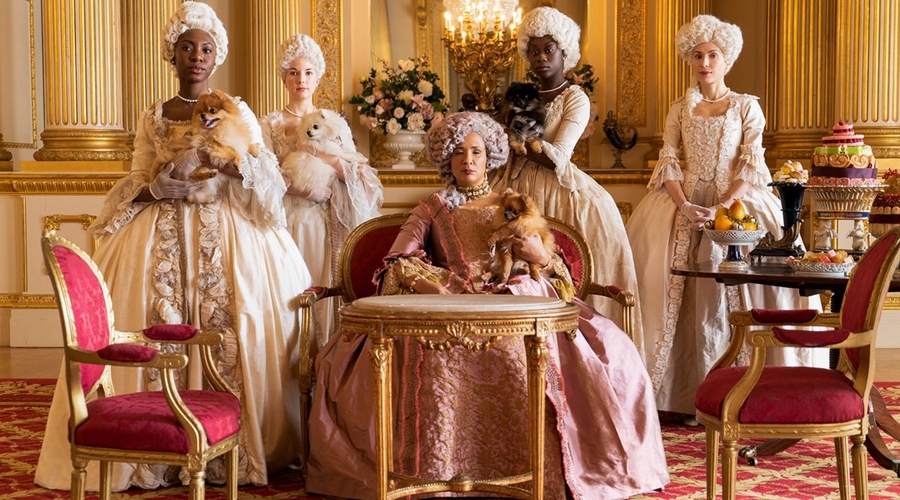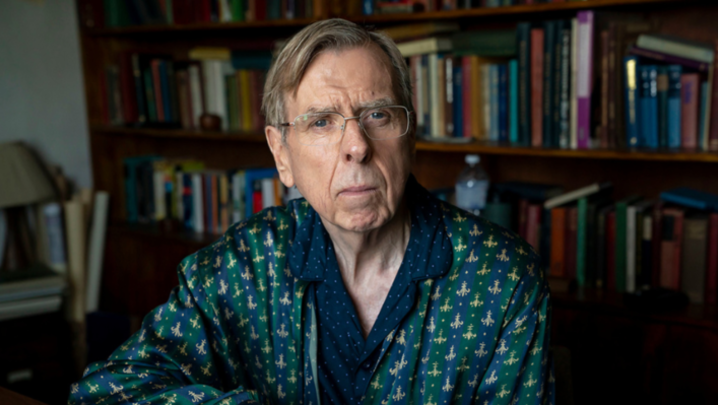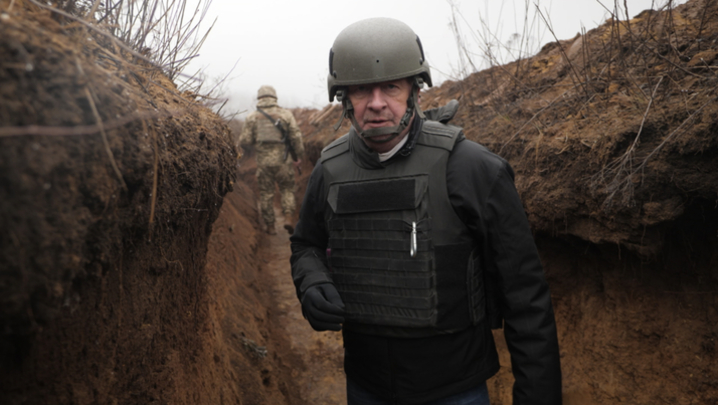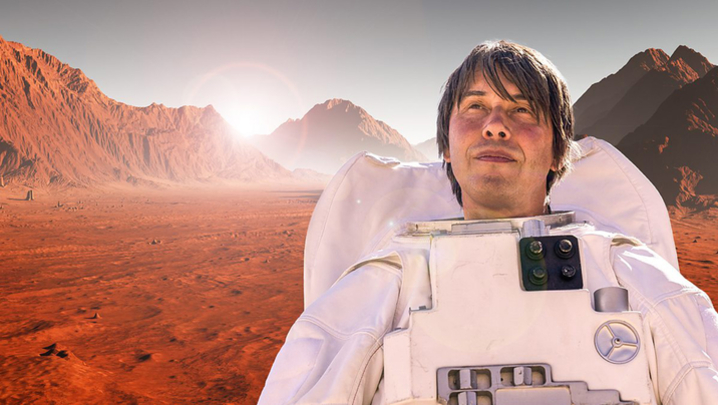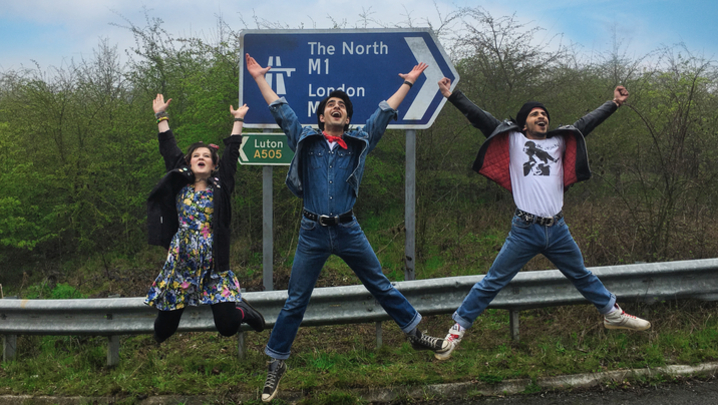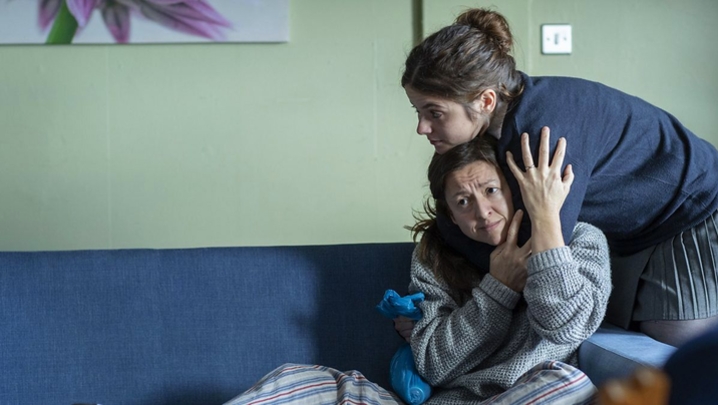Sheree Folkson is one of the directors on Netflix’s biggest ever series, the period drama Bridgerton.
During a long career spanning TV and film, she has worked with some of the best actors and writers in the business.
What does the job involve?
We take a script and turn it into a living, breathing thing.
That sounds simple, but surely it takes time to make a show?
I start work, as sole director, on a four-part drama in the UK at the end of April. Sole directors are involved in the early creative decisions and also have to cast and crew a series, so I’m already looking at actors and crew with the producers and writer. It will be shooting until September and editing until November.
Is it done differently in the US?
I work a lot in the US, where I can finish a one-hour episode in just three weeks – that’s maybe seven days’ prep, shooting for 10 and an edit in just four days. The American system is completely different, although not all US shows I make are shot that quickly. It depends on the budget.
Who do you work with most closely on a production?
The producer, director of photography (DoP), production designer, first assistant director, the cast, the editor and [with the US way of working] the writers and showrunner.
If I start a show, I also work closely with the writer, costume, make-up and hair and casting departments. With the British system, you don’t work so much with the writers on set, but on Bridgerton, which was shot in the UK but using the US system, the writer or showrunner was on set every day.
Do you enjoy sitting in the editing suite?
I do enjoy the edit. There’s less time pressure and you haven’t got 100 people looking at you, thinking, “What now?” It’s just you and the editor in a room. The hardest bit of the job is being on set filming. But it also gives you a great buzz of adrenaline, which you don’t get in the edit.
How did you become a director?
I was obsessed by old movies – I loved Hitchcock and William Wyler as directors, and watching Bette Davis, Barbara Stanwyck and Hollywood musicals.
The directors were always men and I never thought about becoming one, but it was the female stars who often carried the movies. So, I went to drama school but then struggled to find much work, though I did play a Munchkin in The Wizard of Oz at Newcastle Playhouse!
I gave up acting and went to university and did a politics degree. Then I decided I needed to do something creative and was accepted by the BBC on its graduate trainee scheme.
That sounds like great training?
It was amazing – I spent two years working in different departments, working out where I fitted in. There was an eclectic mix of people – future BBC political editor Nick Robinson was in my year.
What was the first TV programme you directed?
I started to direct factual programmes for the BBC One religious and ethical series Heart of the Matter and BBC Two arts programme The Late Show. My first drama was a factual piece, The Trials of Oz, based on the transcripts from the 1971 obscenity trial of the alternative Oz magazine. It was a hilarious contrast between the counter-culture and the old guard. I had the most amazing cast: Alfred Molina, Nigel Hawthorne, Hugh Grant, who wasn’t yet famous, and Leslie Phillips as the judge.
What came next?
An episode of The Bill, but I found it creatively uninteresting – it was a formula and I couldn’t bring anything to it. I returned to docs for a while, but then I got the chance to direct and produce A Royal Scandal about the terrible marriage of George IV, starring Richard E Grant. I loved it and stuck with drama.
What do you bring with you to work?
My iPad, which has the script on it, a water bottle and, when I’m filming, loads of warm clothing and waterproofs – I get really cold. If I’m outside, I’ve been known to bring my hot-water bottle, too.
What makes a good director?
Understanding the script and the writer’s intentions is key, as is having a point of view and vision of your own. Clear communication with cast and crew, imagination and understanding the craft of the actor are also important.
Do you need technical knowledge?
I know what I want something to look like – I’m very strong on the visual look. But I trust my DoP and camera operator on how to achieve it technically.
Which work are you most proud of?
Casanova – the script from Russell T Davies was just fantastic. He’s like a poet; his words sing and have such wit. It was inspiring and it inspired me to make something bold. We had David Tennant and Peter O’Toole in the cast – it was a wonderful experience.
How does it feel to be involved with a runaway success like Bridgerton?
Obviously, it feels great. I have always loved period drama – both watching and making it – particularly those with a more modern/irreverent eye. I knew we were making something special, but I had no idea it would appeal to such an amazingly large audience. It’s very fulfilling to think that so many people have watched your work.
Television or film?
I think they’ve always been indistinguishable. You need the same skills and creativity as a director to tell stories, whether they are for TV or film – I really can’t see what the difference is from a creative point of view. From a skill-set angle, you have less time to shoot TV, so it can be more challenging in that way.
What are the best and worst parts of the job?
The best is being able to use your creativity and imagination, and working with a large group of talented people who bring their own creativity and imagination to the table. Making television and film is a communal experience. The worst is when time is short – when I’m filming, I’m frequently fighting the clock, which is hugely frustrating. And getting up early.
What advice would you give to someone wanting to direct?
Watch as much as you can. Go back to the old movies as well as watching contemporary film and TV – there are so many things you can draw on.
So, is it a golden age for TV directors?
There are so many more outlets for content than when I first started directing, when there were just four TV channels making drama in the UK. That’s good for TV directors.
Has the job changed over time?
There’s less sexism and many more female directors. Considering that we’re 50% of the population, though, we’re still way behind.
Is there any genre you’d love to direct?
I want to do a musical more than anything.
Sheree Folkson was interviewed by Matthew Bell. The director is represented by Casarotto Ramsay.

